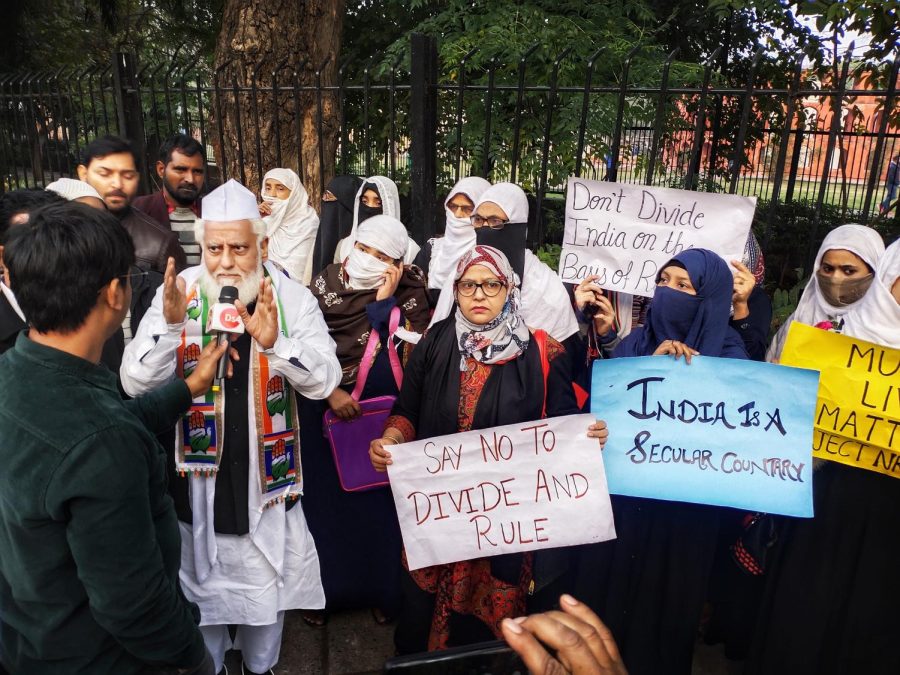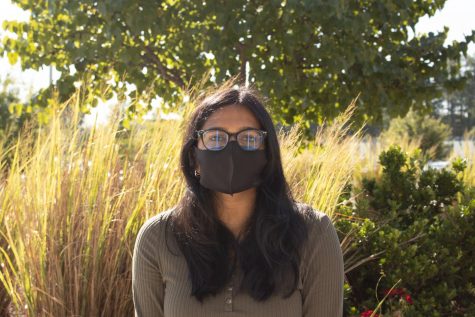The Rights We Take For Granted
This discrimination against Muslim women has been going on for years. Credit: Sanjeev Yadav, DiplomatTesterMan, via Wikimedia Commons
February 25, 2022
In the United States, and schools especially, we have many freedoms that other students do not. Everyone should have the right to self-expression and the right to follow whatever religion they wish to. Religious expression in the United States is a lot better than it was in the past and than it is currently in other countries. Many times Americans take for granted the conditions they live in and forget to think about other countries that have it much worse.
Recently in Southern India, there has been much discrimination against its Muslim minority, especially in schools. Many Muslim women are looking to overturn a state policy that has allowed schools to ban the hijab. Many students say that this ban violates their right to education and religious freedom.
This discrimination also goes past schools as it occurs simply in daily life as well. For example, recently, prominent Muslim women in India have been listed for “auction” on unsanctioned apps and some Hindu nationalist leaders have openly called for Muslims to be killed.
Protests against this ban began in early January when a government-run women’s college in Udupi, restricted Muslim students from wearing the hijab in classrooms as “it was not a part of the school uniform.” Policies similar to this were soon established at other colleges in the state where 12 percent of the population is Muslim.
These policies were rejected by students and their families but many officials responded by saying the ban on hijabs did not violate any constitutional rights. Until the headscarf issue is resolved it has also been said that students should not wear any religious garments in classrooms. At a Karnataka Public School, Aliya Meher was told that she would not be able to take an exam if her hijab was not removed. She responded to this by saying she would just have to not take the exam as she didn’t want to compromise on the hijab or her religion.
Many Muslim students have challenged the hijab ban along with others who have protested this ban and these policies by crowding outside schools, with Muslim protestors in hijabs against Hindu counter-protesters who wore scarves the color associated with Hindu nationalism, saffron. In a widely shared video, Muskan Khan, a hijab-wearing student, was taunted at her college by a group of men wearing saffron scarves and chanting Hindu nationalist slogans.
According to NBC News, Nasreen Syed, a teacher who has led protests against the ban said that some schools are not just making Muslim women remove their hijabs in classrooms but also before they even can enter the premises. Syed told NBC News, “I condemn the government’s decision to disallow us from entering with a hijab before the hearing is finalized. They cannot force this upon us. We feel uncomfortable and disrespected.”
The Karnataka government disagrees with lawyers for the petitioners who say that banning the hijab goes against several articles of the constitution, including one which guarantees religious freedom. Instead, they say that “wearing the hijab is not an ‘essential religious practice’ of Islam.”
For now, officials say that it’s the school’s decision whether they decide to allow students to wear religious attire or not.
The debate and protests surrounding this ban have drawn global attention, including from Malala Yousafzai, a Pakistani advocate for girls’ education. On February 8th, she said on Twitter, “‘College is forcing us to choose between studies and the hijab’. Refusing to let girls go to school in their hijabs is horrifying. Objectification of women persists-for wearing less or more. Indian leaders must stop the marginalization of Muslim women.”
On February 12th, the Indian Ministry of External Affairs released a statement saying “Those who know India well would have a proper appreciation of these realities. Motivated comments on our internal issues are not welcome.”
Hasina Khan, a founding member of Bebaak Collective, a group based in Mumbai advocating for the rights of Muslim women said, that wearing the hijab should be a matter of individual choice. “When I was 15, I used to wear a hijab, today I no longer practice the religion or cover my face. … It was my own choice to make, which these women are not being given.”
In the United States there are so many things we take for granted, things like simply being able to wear what we want. Students at Green Level don’t have to go through religious oppression the same way students in other countries do and we should be aware of that. We should educate ourselves and stop being so ignorant about what happens in other countries that we couldn’t even imagine happening to ourselves.
A school is a place for diversity, somewhere where people of different religions and cultures unite and come to learn. Even though the court has ordered bans on all forms of religious attire, Muslim women are being singled out. Religion and education are 2 different things, and wearing religious attire doesn’t affect anyone’s learning ability or space. There are other religious statues in schools that haven’t been protested against, and the state of Karnataka says that they want to separate religion from other institutions so why is there a target on Muslim women?







